[Feature] Justifying the existence of the Wii U Gamepad, and why the device already speaks for itself
Posted on July 1, 2013 by Austin(@NE_Austin) in Features, General Gaming, General Nintendo, Wii U
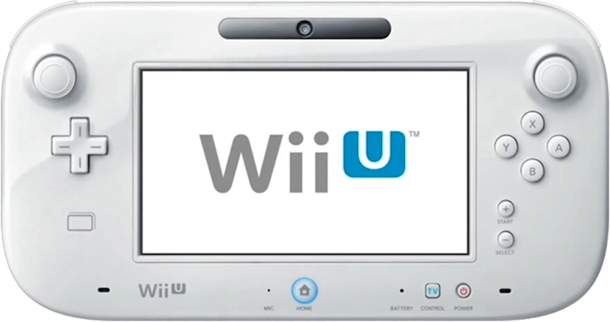
Author: Austin
Coming out of the vacuum that was the E3 show-floor, the last thing I expected to hear out of the gaming press was that Nintendo needed to “justify the existence of the Gamepad”. But alas, that is indeed what I heard! Writers weren’t terribly coy with their impression that we’ve yet to see a truly exceptional experience on the Wii U that couldn’t even remotely be done anywhere else, and they– by their count– certainly didn’t see anything like that at E3 this year.
Neglecting experiences like ZombiU or Nintendo Land (which is an understandable and deliberate oversight), they might be right: We haven’t yet seen a game that both uses the Gamepad in a truly creative way and manages to pass the level of critical acclaim that many people are looking for. But here’s my question “why is that what the Gamepad needs?”
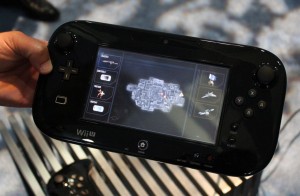
There seems to be this philosophy towards things like the Wii U gamepad that, unless the creator of such devices can offer a mindblowingly fantastic and unique experience with it, it’s not worth the price of its own existence. “Nintendo must blow our minds with the Wii U,” the industry says, “or else it may as well be a regular controller.”
It begs this interesting question of whether we prefer an incremental improvement to the fundamentals of how we play games, or a huge leap in the experiences we can have with a select few games.
Let me give you some examples of what that actually means:
The latter of these options– the “huge leap” in a select few games– is comparable to something like Oculus Rift— a mindbogglingly incredible improvement to the way we experience a small handful of games, but a piece of hardware that we’ve seen do next to nothing for anything other than first-person titles. It’s also related to the release of something like Wii MotionPlus, which improved certain titles immensely, while doing absolutely nothing for the wider industry.
The opposite scenario is one in which a piece of hardware slightly– but noticeably– improves a very large group of games. This is the category into which things like analog sticks, the DS touch screen, or online connectivity are placed, and also the one into which the Wii U gamepad belongs, but fails to be placed in by most people.
So when I look at the wider response to this new piece of tech, I don’t see a device that’s failing to meet its potential– I see a tool whose potential is being mislabeled.
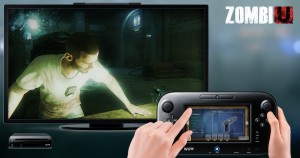
As a staunch supporter of the Wii U from a hardware perspective (I dare not try to defend its software situation, after all), it’s very clear what the Gamepad is best at offering: Streamlined menu navigation, off-TV play, cleaner TV-screen presentation, and proper splitscreen multiplayer. These are the pillars on which the Wii U’s merit stands– not on some one-off novel experience akin to the Wii’s Skyward Sword or Wii Sports. Here are four features that, when implemented, unequivocally and irrefutably improve a gameplay experience in the most basic of ways.
Let’s use history for another example of this:
When a second analog stick was added to controllers, most folks weren’t waiting for a brand new type of game that could only be done with this added feature– and we never got that. What happened instead was that developers used the second stick to control an in-game camera more efficiently, and people went “Oh hey, that’s a lot easier. Nice.”
Nothing totally unheard of. Just a fundamental improvement to the types of games we already had. The same applies to the PC’s mouse, a rumble pak, shoulder buttons, analog sticks, online play, HD graphics– there’s a myriad of examples out there, none of which were held on trial, guilty-until-proven-innocent like the Wii U Gamepad has been.
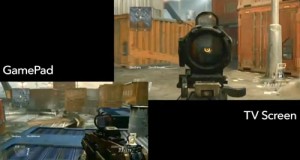
Now, it’s a bit of a false equivalency to equate the Gamepad to things like analog sticks. Analog sticks were cheap and easy to produce, whereas the Wii U’s controller arguably eats up the bulk of the system’s cost. There’s a strong argument to be made that Nintendo would have been better off pricing the system at $250 or less and not messing with a touch-screen controller.
The counter argument to be made is that Nintendo’s inclusion of the Wii U Gamepad likens itself to Sony or Microsoft’s inclusion of powerful processing and enhanced visuals. High-definition capabilities irrevocably marginally improve a gaming experience, and they add a huge amount of cost to a system– much like the Wii U Gamepad. The difference here is that the benefit of HD visuals is very easy for layman to see, whereas the benefit of a controller with a screen isn’t immediately noticeable. But that doesn’t necessarily discredit Nintendo’s device.
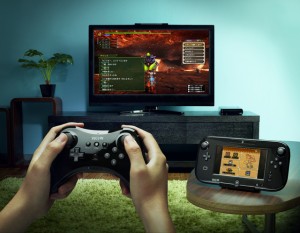
All of this is not to say that we haven’t or never will see a new type of game come out of the Wii U Gamepad. I’m sure we will, knowing Nintendo, and we’ll have a lot of fun with it before moving onto the next thing. The problem is when people box the device in and fail to recognize it for its strengths, looking instead for something that doesn’t exist, and shouldn’t have to. I don’t mean to defend the Wii U when clearly it’s lacking in the most basic of departments, but I do think there’s cause to remind people not to chastise any system for the wrong reasons.
The Wii U is a system worth criticizing. Just not for the hardware.
Want to participate in more NintendoEverything goodness?